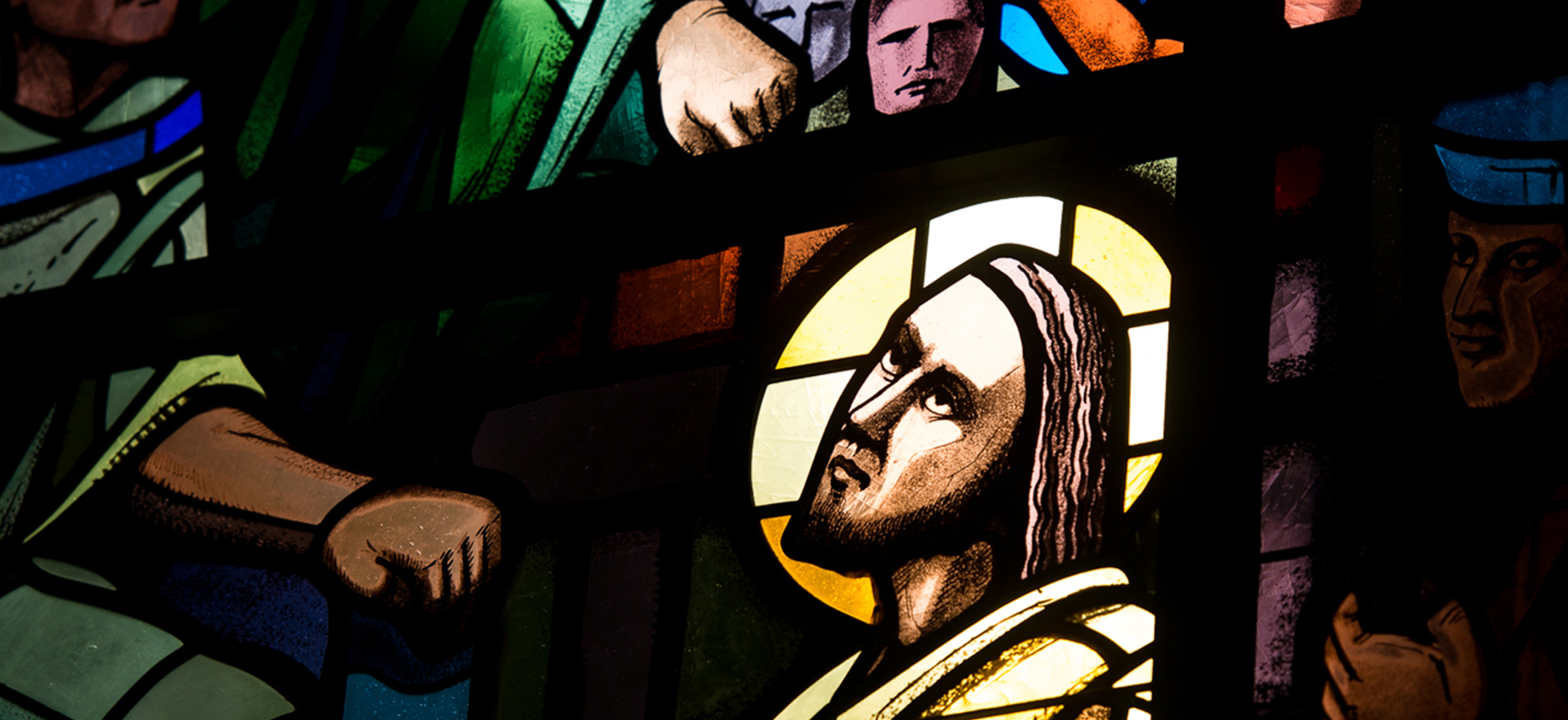Seeking Truth and the Problem of God

An Assumption education encourages students to seek the truth. Assistant Professor of Theology Ty Monroe’s, Ph.D., theology course, The Problem of God, does just that, beginning with asking students to think about why a Catholic college would offer such a course.
“It often turns out that students hadn’t ever considered why thinking about, speaking about, or knowing God directly could be a problem. But, of course, these are ‘problems.’ But it is the kind of problem that, when faced openly and honestly, provides a valuable opportunity for humans to do what I think we were made to do: seek the truth and then live the truth.”
In his The Problem of God course, Prof. Monroe approaches this complex topic in a meaningful way that provides students with a deeper and more developed understanding of the subject matter. Prof. Monroe accomplishes such by encouraging students to “ask and answer questions that shape the very way we see the world and live within it, doing so in a simultaneously free and critical way.” The content, which is firmly situated in the liberal arts, helps develop students’ fundamental theological skills.
“Thinking about who God is and how we know God is critical for everything else we do within the enterprise of theological thinking and communicating,” he explained. “Every time I teach a course like this I know that, on the one hand, I’m helping students develop their fundamental theological skills so they can go on and do even more, theologically.”
The Problem of God includes the examination of theological, philosophical, and literary works– including Augustine’s The City of God —that examine what 20th century American theologian John Courtney Murray called ‘the problem of God.’ Prof. Monroe explains that ‘problem’ is, essentially, “the challenge posed to the human mind by the very idea of God (in general) and by the Christian understanding of God (in particular).”
The texts encourage students to explore several key questions. “For me, [this class] means walking with students through a series of texts that force upon us a few key questions: is there a God? Who is that God and what is God like? What does it mean to know or relate to God in a meaningful way? What difference does the reality (or absence) of God make to our shared life together as humans?” he explained.
Prof. Monroe’s aspirations for students taking this course, or the preceding Introduction to Theology, to approach these courses with minds eager to explore some deep questions and without too many preconceived notions.
“Many students tend to approach these courses thinking either that it’s going to be a repeat of whatever they might have heard in previous years of Catholic religious education, or that it’s going to be entirely foreign to them because they’ve never had any formal theological or religious education,” he said, adding that students are usually surprised at their experiences with the course. “Because theology explores questions that get to the very core of the human experience in a way that is intellectually rigorous, the former group of students tend to find that it’s anything but a repeat of what they’ve learned previously. And the latter group of students tend to find that there is plenty of space for them in this inquiry and that they have plenty of valuable questions and insights to bring to the table.”
